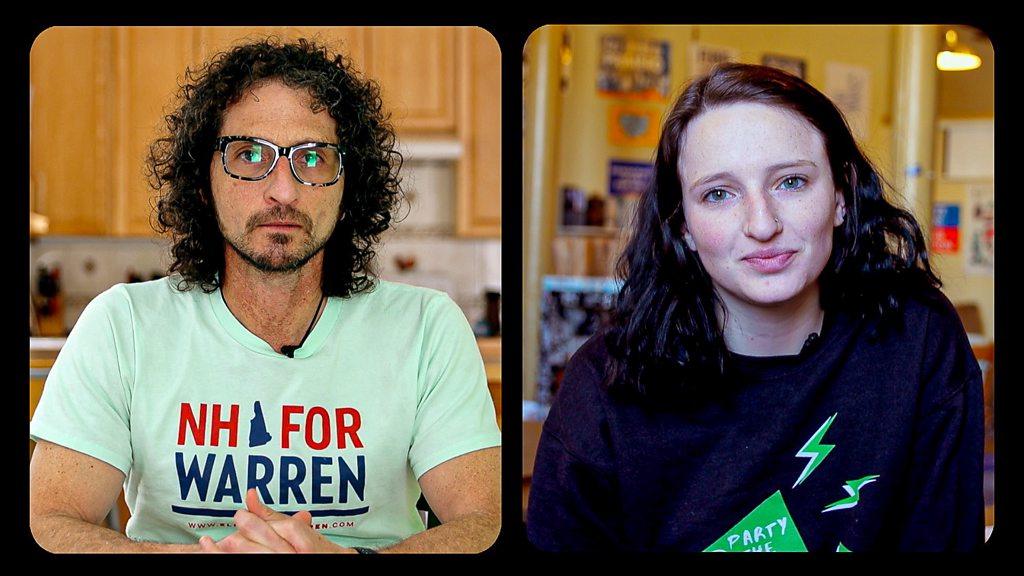Sanders unveils $1.5tn universal childcare plan ahead of South Carolina debate
- Published
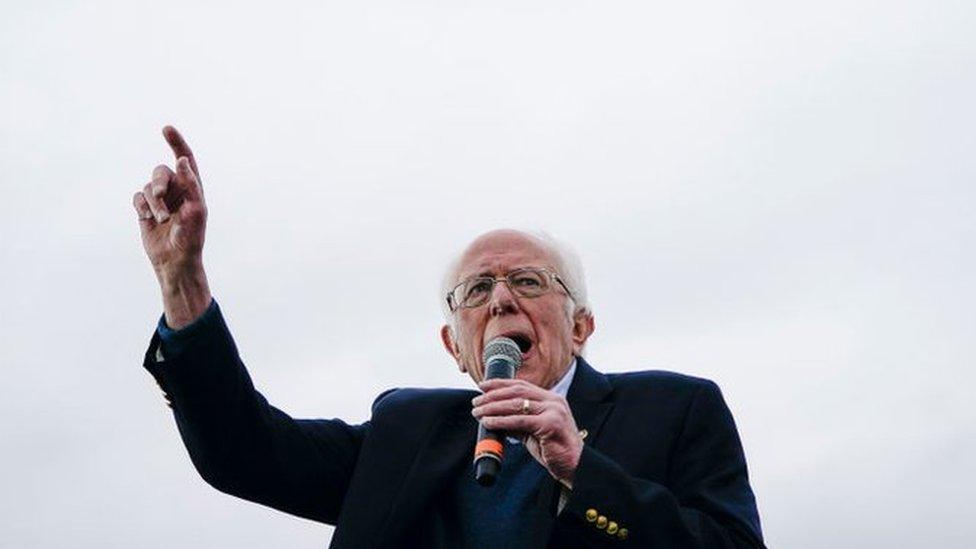
Bernie Sanders is a self-proclaimed Democratic socialist
Fresh off a decisive caucus win in Nevada, US Democratic frontrunner Bernie Sanders has unveiled a $1.5tn (£1.1tn) universal childcare plan.
It promises free childcare and early education, funded by a wealth tax.
It comes ahead of Tuesday's Democratic debate in South Carolina - the next state to vote to choose a candidate to face Donald Trump in November.
The contest is seen as key for former vice-president Joe Biden, who trailed Mr Sanders in Nevada last week.
What does Sanders's plan say?
"We know that the first four years of a child's life are the most important years of human development, so it is unconscionable that in the wealthiest country in the world, we do not properly invest in early childhood education," Mr Sanders said in a statement.
The Vermont senator's plan would guarantee "free full-day, full-week, high-quality child care from infancy through age three, regardless of income", as well as pre-kindergarten education from age three, with "mandated low child-to-adult ratios".
His plan would also ensure childcare and education workers earn "a living wage". Early education programmes would be paid for by the federal government but administered by the states.
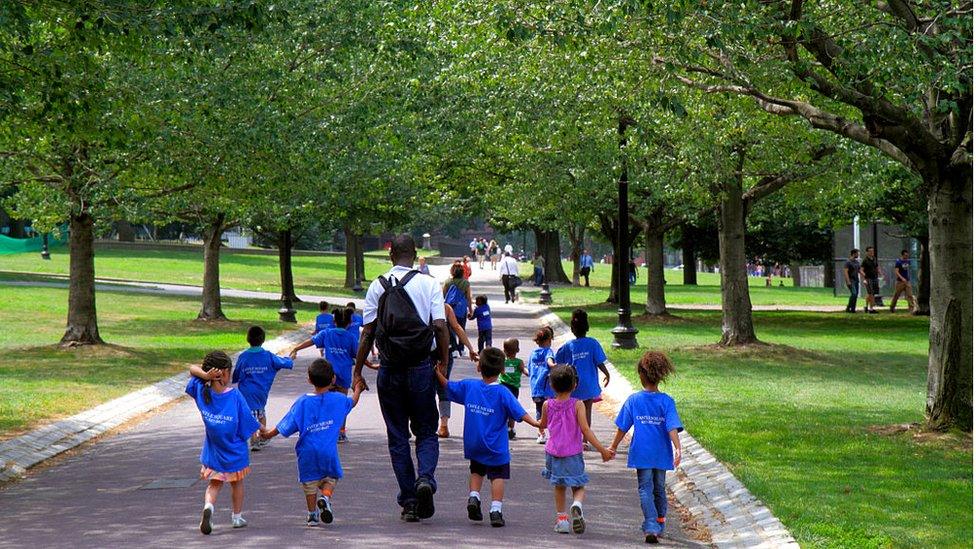
Childcare in America is unaffordable for many families
"Our current child care and early education system in the United States is an international embarrassment," the plan states.
"By taxing the extreme wealth of the top 0.1%, we can invest $1.5tn over the next decade on guaranteeing free, universal, quality child care and early education for all."
Mr Sanders's signature Medicare for All plan is also pricey. His 2016 campaign estimated it will cost $1.38tn per year, though opponents say it could be double that.
Mr Sanders's more moderate rivals have often criticised his expensive policies as being unfeasible.
Mr Biden and Massachusetts senator Elizabeth Warren have also put forth childcare proposals. Mr Biden's calls for universal pre-school for three- and four-year-olds. Ms Warren's would also use a wealth tax to subsidise childcare and early education. Former South Bend, Indiana, Mayor Pete Buttigieg has pledged to spend $700bn in a decade to subsidise similar programmes.


Target list widens
Bernie Sanders made sweeping healthcare reform, replacing private insurance with a government-run programme, a central part of his campaign from the very beginning. Now he's adding another trillion-dollar promise - for government-managed childcare - to the mix.
Some of the Vermont senator's rivals have their own plans, but - in true Sanders fashion - his is the most expansive and the costliest. Given that childcare was one of Elizabeth Warren's first big proposals more than a year ago, Sanders's decision to launch his plan now could be an attempt to peel off more of her support or prevent her from gaining any strength after a well-received debate performance in Nevada last week.
The announcement will give Sanders's more moderate opponents another target to aim for in the days ahead, as they try to paint the now-front-runner as making expensive promises he will be hard-pressed to keep if he wins the presidency.
For many American parents, however, the high cost of early childcare - sometimes running into thousands of dollars a month - is a serious financial burden. Even the hope of help is better than nothing.

Childcare elsewhere
In Sweden, which is considered one of the best places in the world for working families, parents receive childcare support from age one to five, plus tax-subsidised pre-school and parental leave
Similarly in Germany, families are entitled to childcare from birth until primary school age - and if parents cannot find space in a nursery, they are able to sue the local government for lost wages
In Japan, day care and pre-school are subsidised, paid for by taxes, but parents often struggle to find spots in care facilities - some 20,000 were on waiting lists in 2019

On Sunday, Mr Sanders - a self-proclaimed Democratic socialist - came under bipartisan fire for defending remarks he made in the 1980s regarding some of the policies of Fidel Castro, the late leader of Communist Cuba - a country that "educated their kids, gave them health care, totally transformed the society".
Mr Sanders said on CBS News' 60 Minutes programme that while he was "very opposed to the authoritarian nature of Cuba", it would be "unfair to simply say everything is bad", pointing out Castro's literacy programme.
"Is that a bad thing? Even though Fidel Castro did it?" Mr Sanders said, adding that unlike President Donald Trump, he did not consider North Korea's Kim Jong-un or Russian President Vladimir Putin a friend.
But other lawmakers, including Florida Democrat Debbie Mucarsel-Powell, said defending Castro's regime was "unacceptable".
Allow X content?
This article contains content provided by X. We ask for your permission before anything is loaded, as they may be using cookies and other technologies. You may want to read X’s cookie policy, external and privacy policy, external before accepting. To view this content choose ‘accept and continue’.

Allow X content?
This article contains content provided by X. We ask for your permission before anything is loaded, as they may be using cookies and other technologies. You may want to read X’s cookie policy, external and privacy policy, external before accepting. To view this content choose ‘accept and continue’.

Why does South Carolina matter?
Seven Democrats will take the debate stage on Tuesday in Charleston, South Carolina.
The state is the biggest thus far to vote before March, and the one with the largest percentage of African-American voters.
Mr Biden is counting on support from African-American voters - a demographic largely missing from the early contests in Iowa, New Hampshire and Nevada.
A poll by CBS/YouGov, external in the state last week found Mr Biden retains a narrow lead with 28%, with Mr Sanders at 23% and billionaire Tom Steyer at 18%. The same poll in November had put Mr Biden with 45% of the vote to Mr Sanders's 15%.
Mr Steyer's numbers in South Carolina suggest he may be drawing African-American voters away from Mr Biden - something Mr Biden himself has pointed out, external, blaming "the amount of money being spent by the billionaires".
On the heels of the South Carolina vote is Super Tuesday - 3 March - when 14 states, including California and Texas, vote. By the end of Super Tuesday, it may be much clearer who the Democratic candidate will be.
- Published26 November 2019
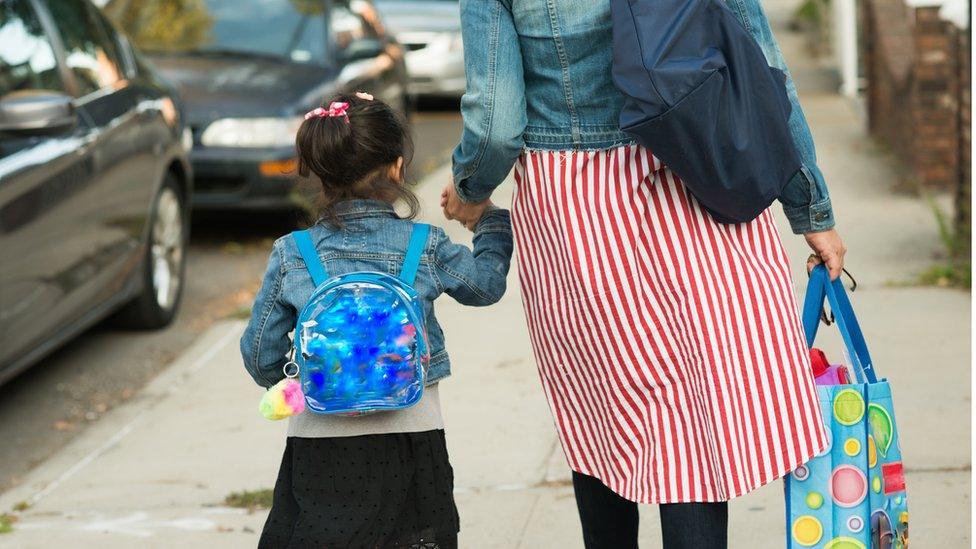
- Published23 February 2020
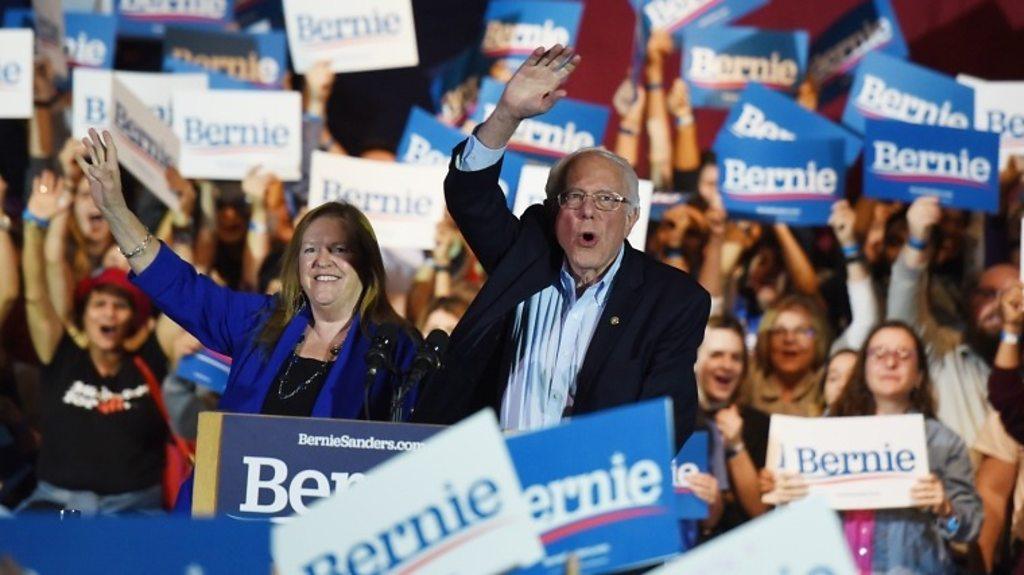
- Published11 February 2020
